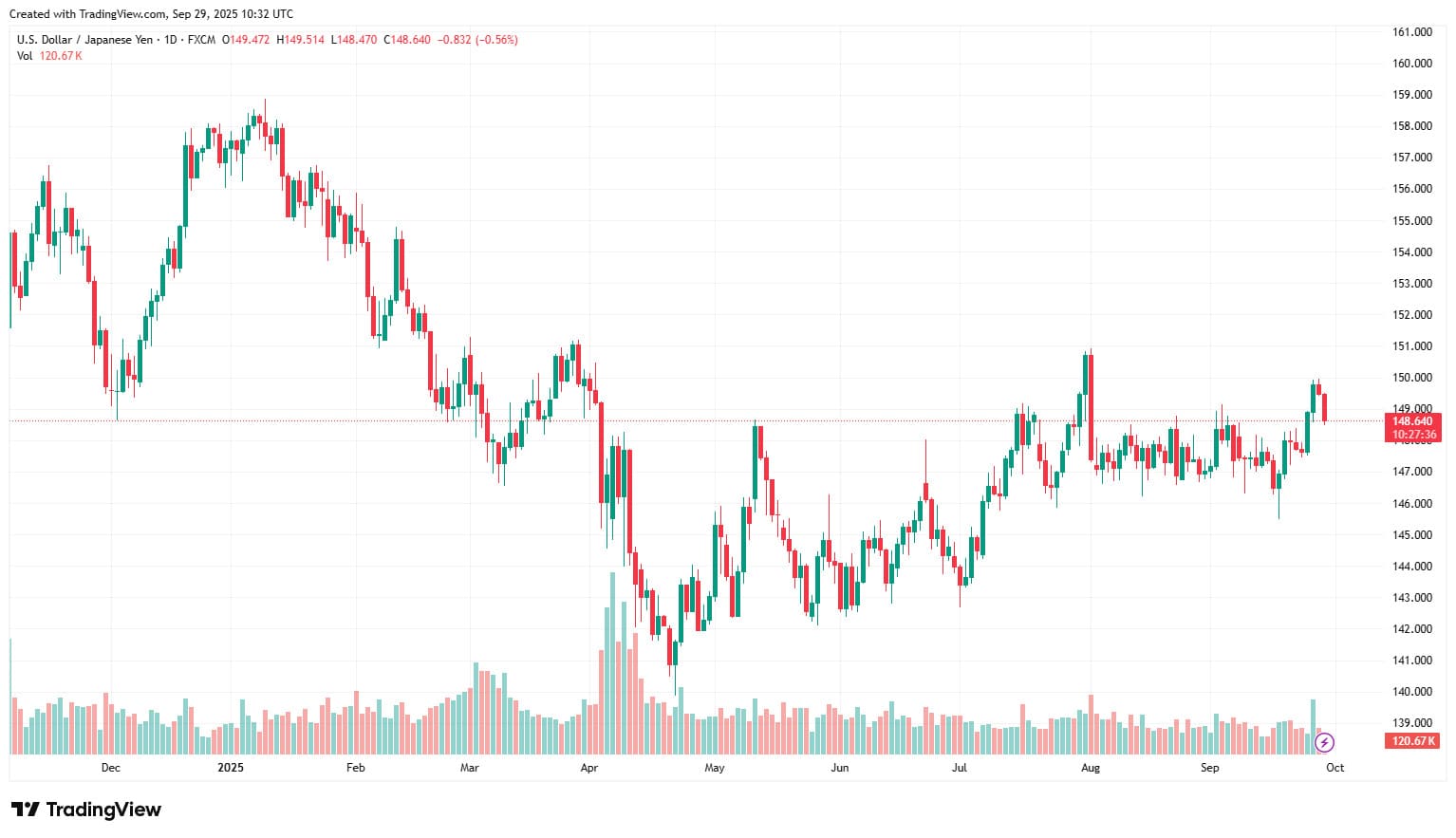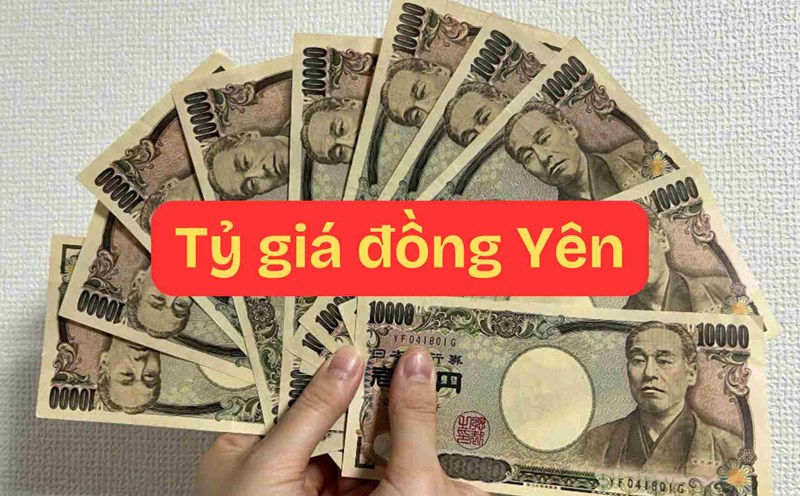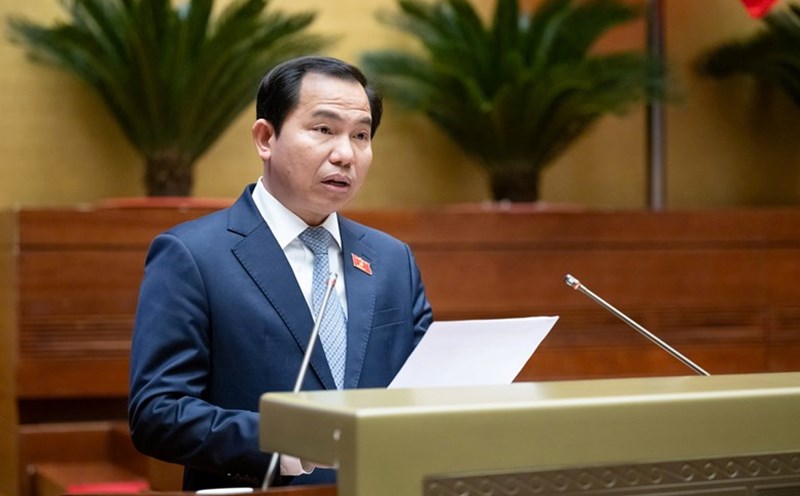Yen exchange rate today
According to Lao Dong, on September 29, the Yen suddenly increased in price in the first trading session of the week, when the USD/JPY exchange rate decreased for the second consecutive session and fluctuated around 148.70.

The currency is supported by a safe-haven sentiment, as the market fears the risk of the US government having to close due to a budget deadlock.
Japanese Yen appreciates due to concerns about US government shutdowns and expectations of Fed lowering interest rates
According to FXStreet, US President Donald Trump will meet with congressional leaders on September 30 to discuss budget issues. If a deal cannot be reached, the US government could temporarily suspend operations from October 1, and impose new tariffs on trucks, pharmaceuticals and many other items. Reuters said that this scenario not only increases political instability but could also delay the September employment report and other important economic data.
In addition, the prospect of the US Federal Reserve (Fed) continuing to cut interest rates in October also boosted the strength of the Yen. The US August inflation report raises expectations of a Fed action, with the CME Fed Watch tool showing an 88% chance of a rate cut in October and a further 65% chance of a rate cut in December. The greenback is therefore under pressure to decrease compared to many major currencies, including the Japanese Yen.
In Japan, investors are also closely watching the Bank of Japan's (BoJ) across-the-counter opinions summary report and August retail sales data due on September 30. The July minutes showed that the BoJ is still open to raising interest rates if growth and inflation continue to remain stable.
However, the Yen may face obstacles from domestic political factors. The October 4 election for the leadership of the Liberal Democratic Party (LDP) is expected to affect the monetary policy orientation. If a dovish candidate wins, the possibility of the BoJ delaying interest rate hike will be higher, putting counter-pressure on the Yen.
In the short term, the Yen's upward trend is still supported by political instability in the US, expectations of the Fed loosening policy and close observation of new signals from the BoJ.











